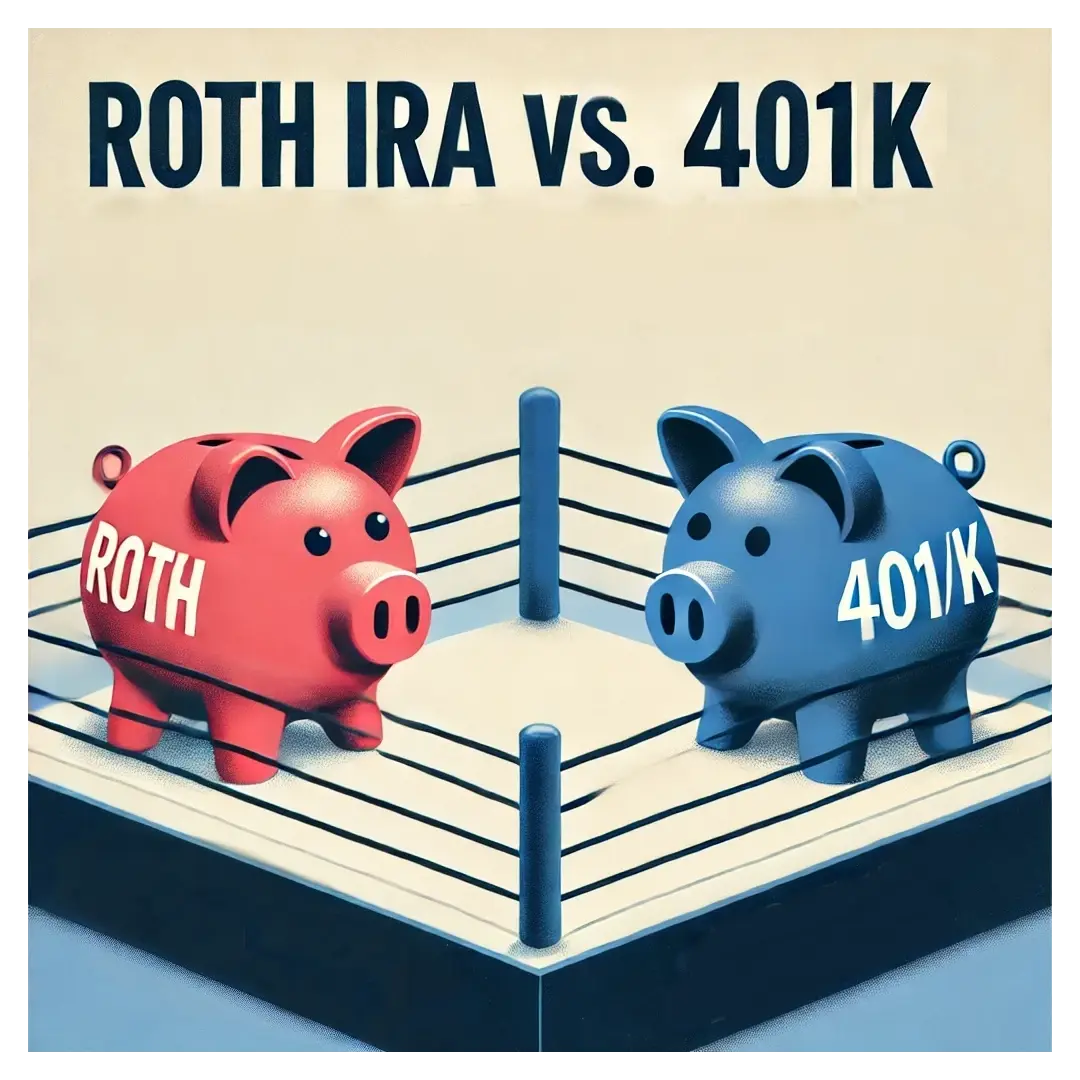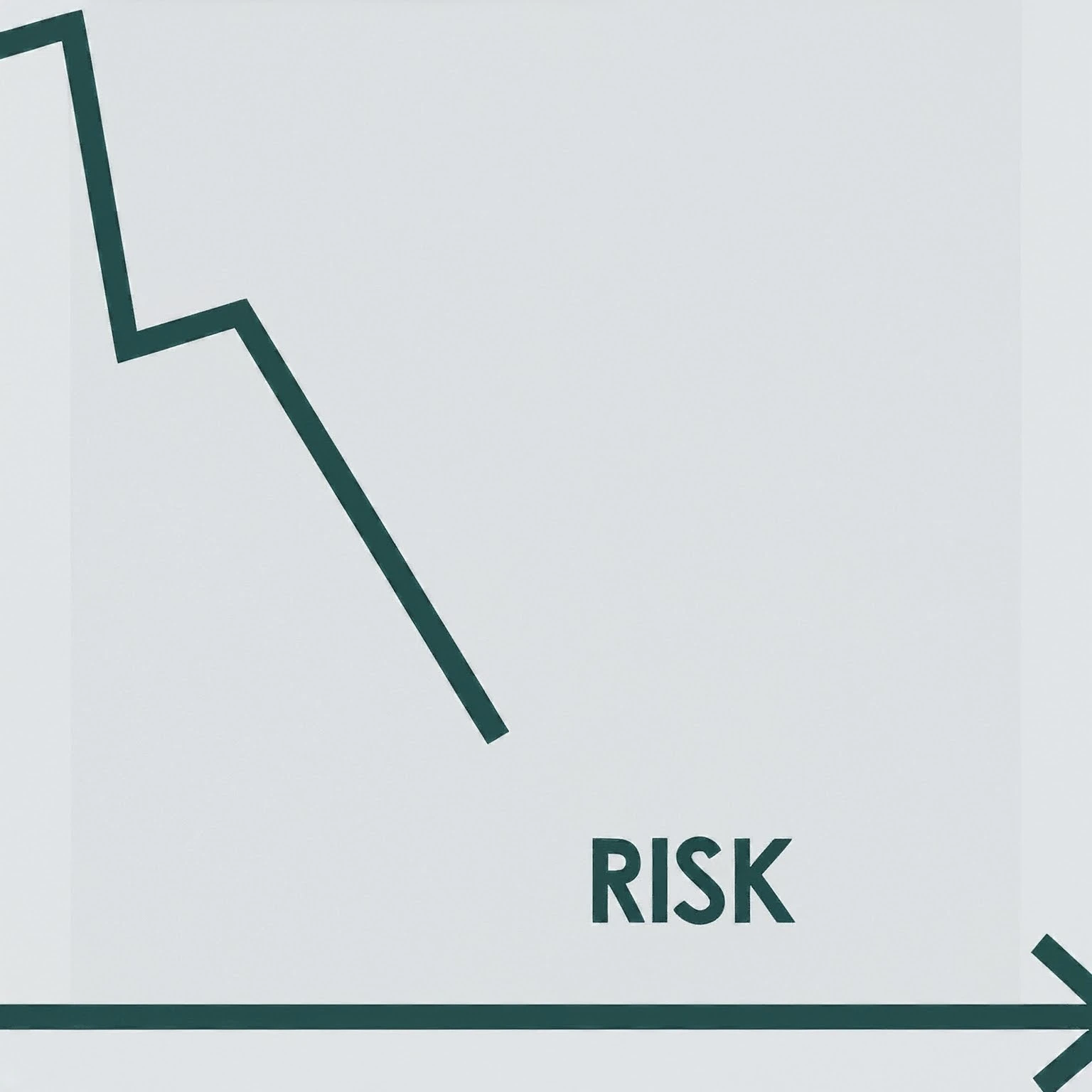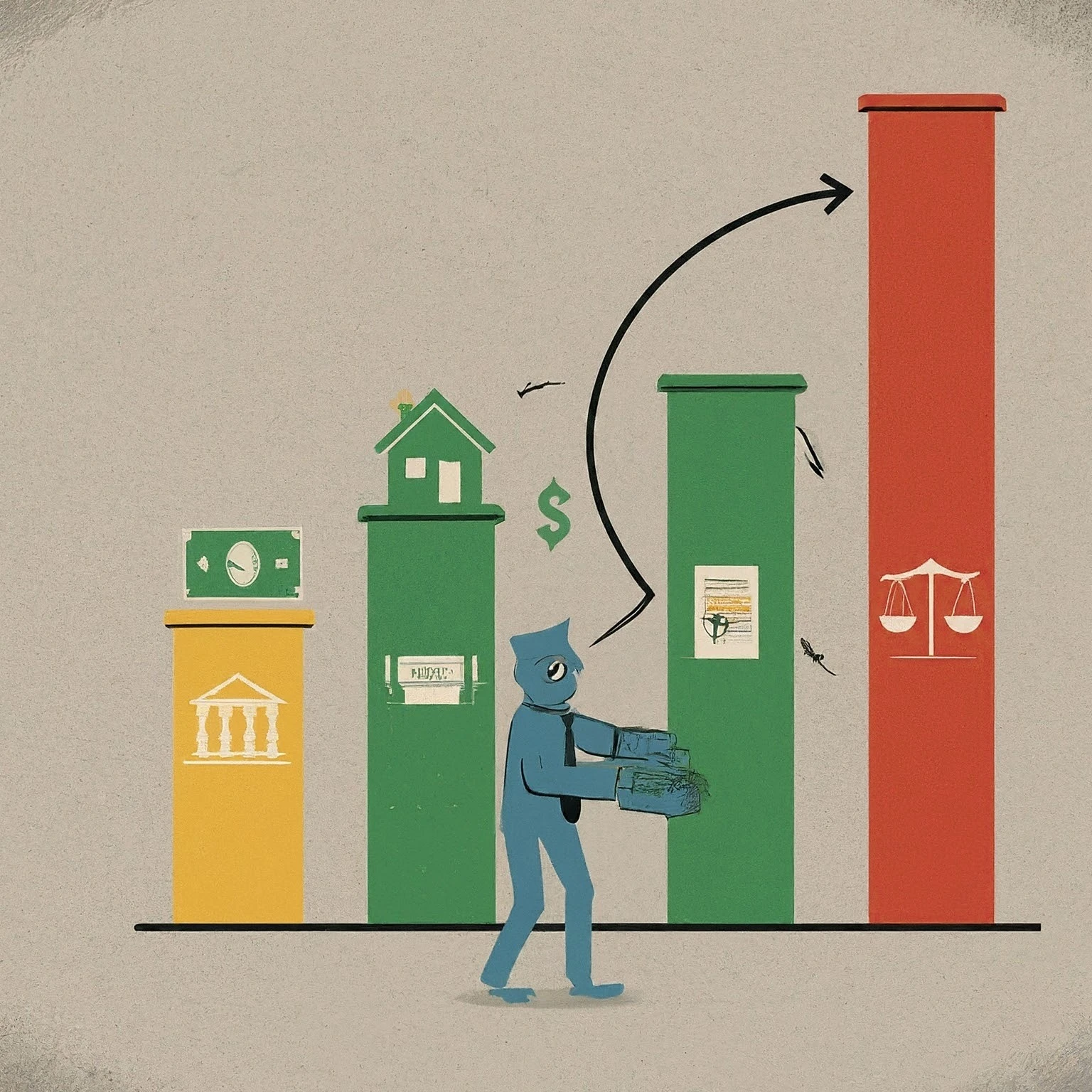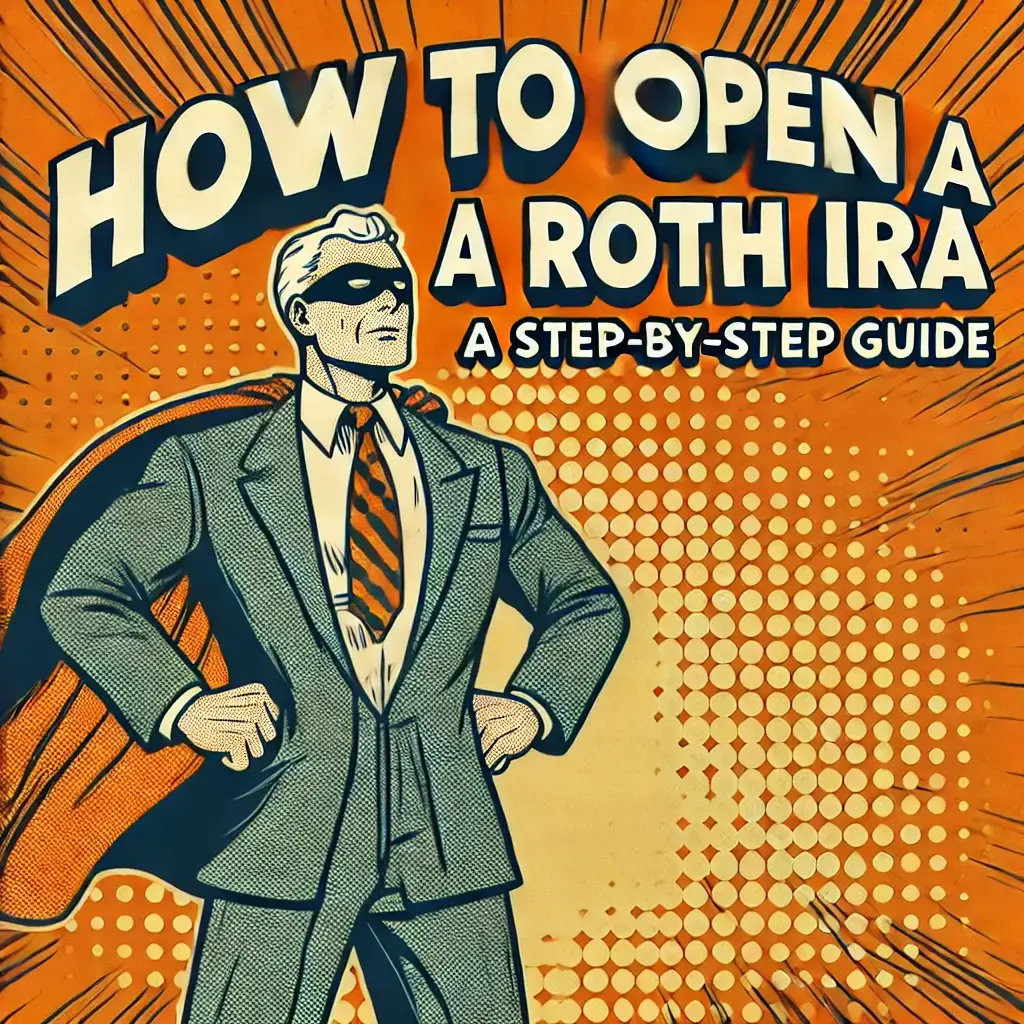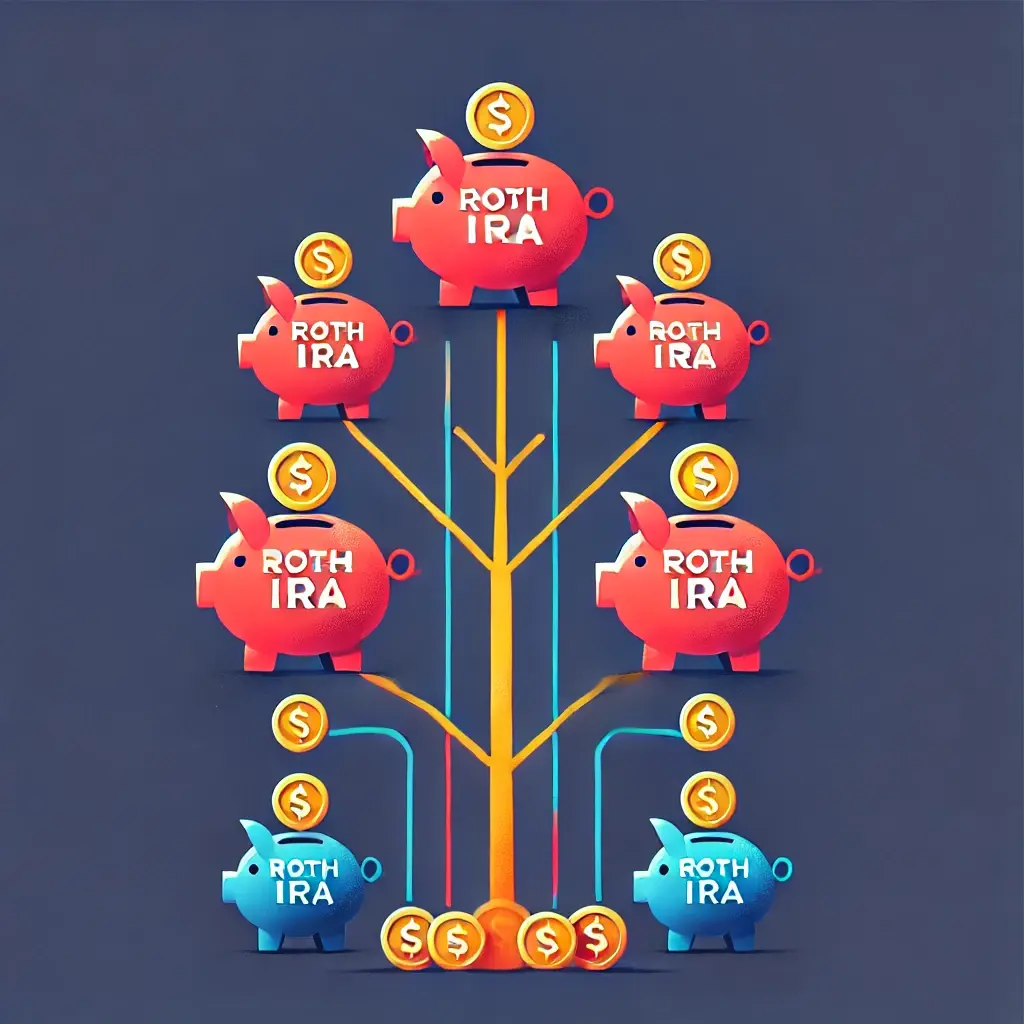
Retirement Planning with Stocks
Retirement planning is the process of determining financial goals for retirement and creating a strategy to achieve them. It involves estimating future income needs, assessing current financial resources, and making decisions about saving, investing, and managing assets to ensure a comfortable and secure retirement. Key components of retirement planning include contributing to retirement accounts (such as 401(k)s or IRAs), managing investment risk, understanding Social Security benefits, and planning for healthcare costs. Effective retirement planning also considers factors like inflation, life expectancy, and desired lifestyle in retirement. The goal is to accumulate sufficient resources to maintain financial independence and quality of life during retirement.
Retirement Planning Guide

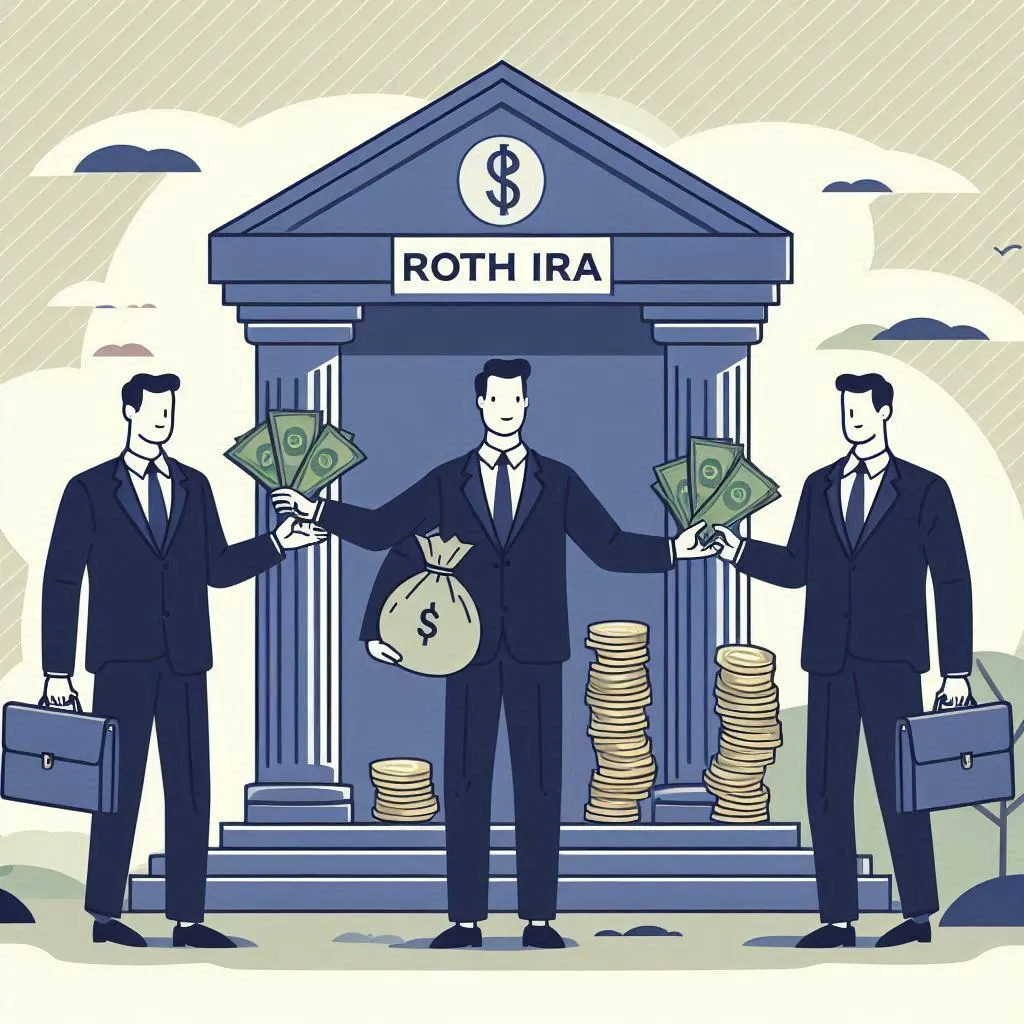

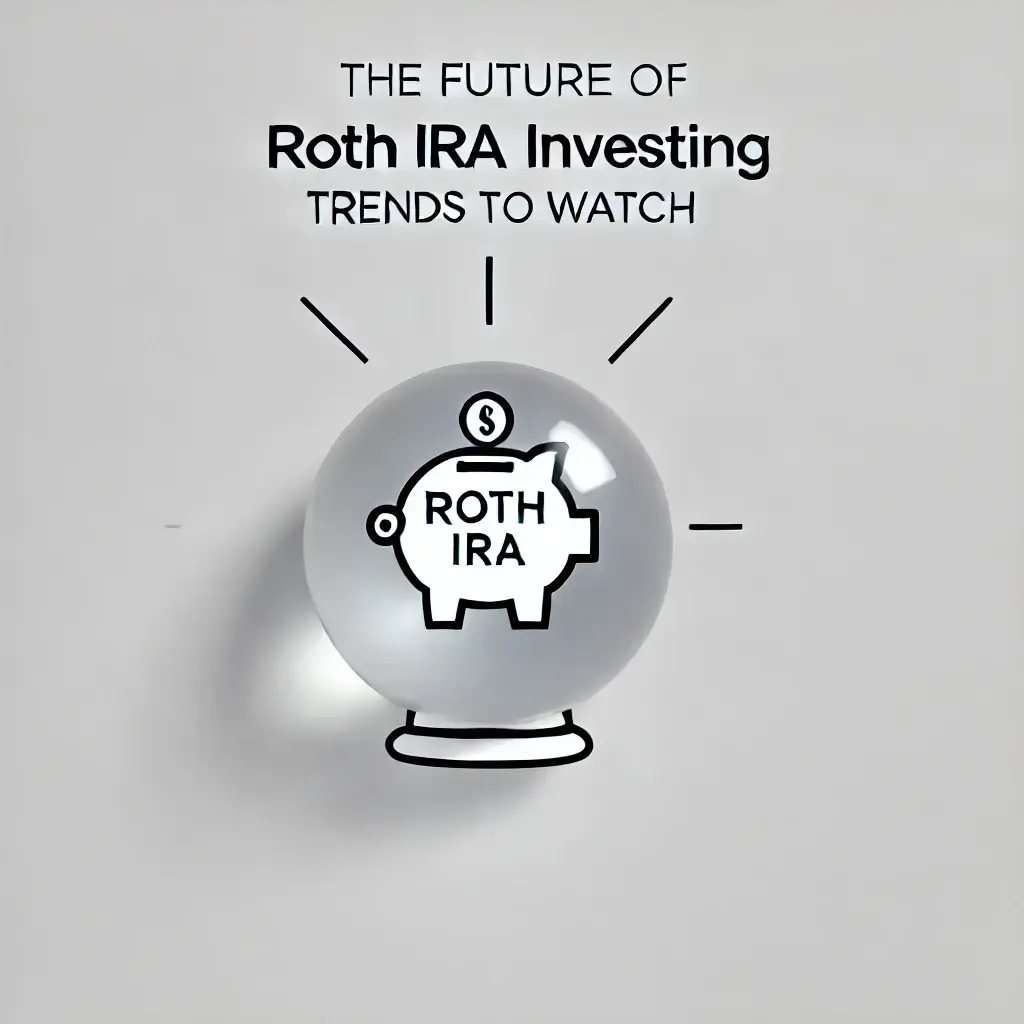
Retirement Planning Glossary
- Asset Preservation(Noun)
- /ASS-et prez-er-VAY-shun/
- Definition: A strategy focused on maintaining and protecting the value of an individual's assets over time, especially during retirement, to ensure that they last throughout their lifetime.
- Etymology: "Asset" comes from Old French "assez," meaning "enough," and "preservation" from Latin "praeservare," meaning "to protect." This term highlights efforts to safeguard accumulated wealth for future use, particularly during retirement.
- Similar: Wealth preservation
- Opposite: Asset depletion
- Example: "The retiree focused on asset preservation to ensure her savings would last throughout her retirement."
- Bonds(Noun)
- /bahndz/
- Definition: Debt instruments issued by governments, municipalities, or corporations where the issuer borrows funds from investors and promises to pay back the principal with interest over a specified period.
- Etymology: "Bond" originates from the Middle English "band," meaning "something that binds." In finance, it represents a formal agreement to repay borrowed money with interest.
- Similar: Fixed-income securities
- Opposite: Stocks
- Example: "Bonds are often considered a safer investment for retirees seeking steady income."
- Charitable Giving(Noun)
- /CHAR-i-tuh-buhl GIV-ing/
- Definition: The act of donating money or assets to charitable organizations, which can also be a part of estate planning to reduce tax liabilities while supporting philanthropic causes.
- Etymology: "Charitable" comes from the Latin "caritas," meaning "charity," and "giving" derives from Old English "gifan," meaning "to bestow." This term refers to planned donations, often for tax benefits or altruistic reasons.
- Similar: Philanthropy
- Opposite: Self-serving
- Example: "Incorporating charitable giving into their estate plan allowed the couple to support causes they cared about while receiving tax benefits."
- Deferred Annuity(Noun)
- /dih-FURD uh-NOO-i-tee/
- Definition: A financial product that delays income payments until a future date, allowing the invested money to grow tax-deferred until the payout phase begins, often used for retirement income.
- Etymology: "Deferred" comes from Latin "differre," meaning "to postpone," and "annuity" from Latin "annuus," meaning "yearly." This term reflects a product designed to provide future income, often after retirement.
- Similar: Postponed annuity
- Opposite: Immediate annuity
- Example: "The deferred annuity allowed the retiree to accumulate savings tax-free until they were ready to start receiving payments."
- ETFs(Noun)
- /E-T-Fs/
- Definition: Exchange-Traded Funds; investment funds that trade on stock exchanges like individual stocks and typically track an index, offering diversification at lower costs than mutual funds.
- Etymology: "Exchange" refers to the stock exchange, "Traded" means bought and sold, and "Funds" represents pooled investments. This term describes a fund structure traded on exchanges that offer diverse exposure.
- Similar: Index funds
- Opposite: Closed-end funds
- Example: "ETFs are popular among retirees for their low fees and easy diversification across different sectors."
- Financial Planner(Noun)
- /fy-NAN-shul PLAN-ur/
- Definition: A professional who provides advice on managing finances, including retirement planning, investments, and taxes, to help clients meet their long-term financial goals.
- Etymology: "Financial" is derived from the Latin "finis," meaning "end" or "settlement," and "planner" comes from Old French "plan," meaning "a scheme." This term refers to someone who helps organize and manage financial strategies.
- Similar: Financial advisor
- Example: "A financial planner helped the couple create a strategy for maximizing their retirement savings while minimizing taxes."
- Gifting Strategies(Noun)
- /GIFT-ing STRAT-uh-jeez/
- Definition: Financial techniques used to transfer wealth to heirs, charities, or other recipients in a tax-efficient manner, often as part of estate or retirement planning.
- Etymology: "Gifting" from Old English "gift," meaning "to give," and "strategies" from Greek "strategia," meaning "generalship." This term describes methods for transferring assets in a planned manner.
- Similar: Wealth transfer strategies
- Opposite: Hoarding
- Example: "Their financial planner recommended several gifting strategies to help reduce their estate taxes while supporting their family."
- Health Savings Account (HSA)(Noun)
- /helth SEY-vingz uh-KOUNT/
- Definition: A tax-advantaged savings account designed for individuals with high-deductible health plans, allowing them to save for medical expenses on a pre-tax basis.
- Etymology: "Health" from Old English "haelth," meaning "wholeness," and "savings account" describes a financial product for storing funds. This term reflects an account dedicated to healthcare expenses.
- Similar: Medical savings account
- Example: "Contributing to an HSA helped them save for future healthcare costs while enjoying tax benefits."
- Healthcare Costs(Noun)
- /HELTH-kair kaws-ts/
- Definition: The expenses associated with medical care, including doctor visits, hospital stays, medication, and long-term care, which are important factors in retirement planning.
- Etymology: "Health" from Old English "haelth" and "care" from Latin "carus," meaning "attention." This term refers to financial expenditures for medical services.
- Similar: Medical expenses
- Example: "Rising healthcare costs are a significant concern for retirees, prompting many to save extra for medical emergencies."
- Immediate Annuity(Noun)
- /i-MEE-dee-uht uh-NOO-i-tee/
- Definition: A financial product where the buyer pays a lump sum in exchange for regular income payments that start immediately, often used to create a steady income stream in retirement.
- Etymology: "Immediate" from Latin "immediatus," meaning "without delay," and "annuity" from Latin "annuus," meaning "yearly." This term describes an annuity that begins payouts right away.
- Similar: Instant annuity
- Opposite: Deferred annuity
- Example: "She purchased an immediate annuity to ensure a steady income during retirement."
- Income Replacement Ratio(Noun)
- /IN-kuhm ri-PLACE-muhnt REY-shoh/
- Definition: The percentage of pre-retirement income that a retiree needs to maintain their standard of living in retirement, often a key metric in retirement planning.
- Etymology: "Income" from Latin "incom," "replacement" from Old French "replacier," meaning "to replace," and "ratio" from Latin "ration," meaning "reckoning." This term represents a comparison of retirement income to pre-retirement income.
- Similar: Income substitution ratio
- Example: "Financial planners often aim for a 70-80% income replacement ratio when designing retirement plans."
- Income-Generating Investments(Noun)
- /IN-kuhm JEN-er-ey-ting in-VEST-muhnts/
- Definition: Investments designed to produce regular income, such as dividends from stocks, interest from bonds, or rental income from real estate, often used by retirees to supplement their income.
- Etymology: "Income" from Old French "encom," meaning "entrance," and "generating" from Latin "generare," meaning "to produce." This term describes investments aimed at producing ongoing revenue.
- Similar: Yield investments
- Opposite: Capital growth investments
- Example: "Retirees often focus on income-generating investments to ensure a steady cash flow during retirement."
- Inflation Protection(Noun)
- /in-FLEY-shun pruh-TEK-shun/
- Definition: Strategies or financial products designed to protect against the eroding effects of inflation on purchasing power, often crucial in retirement planning to ensure income keeps pace with rising costs.
- Etymology: "Inflation" from Latin "inflare," meaning "to blow into," and "protection" from Latin "protectionem," meaning "a covering." This term refers to measures taken to preserve the value of money over time.
- Similar: Inflation hedge
- Opposite: Inflation exposure
- Example: "Investing in assets like TIPS provides inflation protection, helping retirees maintain their purchasing power."
- Inflation-Adjusted Return(Noun)
- /in-FLEY-shun uh-JUHS-tid ri-TURN/
- Definition: The real rate of return on an investment after accounting for inflation, reflecting the true increase in purchasing power provided by the investment.
- Etymology: "Inflation" from Latin "inflare," meaning "to blow into," "adjusted" from Latin "ad-" and "justus," meaning "made right," and "return" from Old French "retourner," meaning "to turn back." This term reflects the actual growth of an investment after inflation is considered.
- Similar: Real return
- Opposite: Nominal return
- Example: "It's important to consider the inflation-adjusted return when evaluating the performance of retirement investments."
- IRA(Noun)
- /I-R-A/
- Definition: Individual Retirement Account; a tax-advantaged savings account designed to help individuals save for retirement with the potential for tax-deferred or tax-free growth.
- Etymology: "Individual" from Latin "individuus," "retirement" from Old French "retirer," and "account" from Old French "acont," meaning "a reckoning." This term refers to a personal retirement savings vehicle.
- Similar: Retirement savings account
- Example: "Contributing to an IRA allows individuals to save for retirement while benefiting from tax deferrals."
- Legacy Planning(Noun)
- /LEG-uh-see PLAN-ing/
- Definition: The process of preparing to pass on wealth, values, and assets to future generations, often incorporating estate planning and charitable giving strategies to leave a lasting impact.
- Etymology: "Legacy" from Latin "legatia," meaning "a bequest," and "planning" from Old English "planian," meaning "to arrange." This term refers to organizing one's estate to benefit heirs and causes.
- Similar: Estate planning
- Example: "Legacy planning allowed the couple to ensure their children and favorite charities would be cared for after their passing."
- Life Expectancy(Noun)
- /LYF ek-SPEK-tuhn-see/
- Definition: The average period that a person is expected to live, often used in retirement planning to estimate the duration of income needs and healthcare expenses.
- Etymology: "Life" from Old English "lif," meaning "living," and "expectancy" from Latin "expectantia," meaning "hope" or "anticipation." This term reflects the statistical measure of how long someone is likely to live.
- Similar: Longevity
- Opposite: Mortality
- Example: "When planning for retirement, it's important to consider your life expectancy to ensure your savings last."
- Lifestyle Planning(Noun)
- /LYF-styl PLAN-ing/
- Definition: The process of aligning retirement savings and investments with the desired lifestyle during retirement, considering factors such as travel, hobbies, and living arrangements.
- Etymology: "Lifestyle" from German "Lebensstil," meaning "way of life," and "planning" from Old English "planian," meaning "to arrange." This term refers to designing a financial plan that supports one's retirement goals and desires.
- Similar: Retirement lifestyle design
- Example: "Lifestyle planning helped the retiree ensure they could travel and enjoy their hobbies without financial stress."
- Long-Term Care(Noun)
- /lawng-term kair/
- Definition: Services that help meet medical and non-medical needs of people with chronic illnesses or disabilities, often crucial in retirement planning to cover potential healthcare costs.
- Etymology: "Long-term" from Old English "lang" and "term" from Latin "terminus," meaning "end," and "care" from Old English "caru," meaning "attention." This term refers to extended healthcare services for those who need ongoing support.
- Similar: Extended care
- Opposite: Short-term care
- Example: "Including long-term care insurance in their retirement plan helped them prepare for potential future health needs."
- Longevity Risk(Noun)
- /lon-JEV-i-tee risk/
- Definition: The risk of outliving one’s retirement savings due to an unexpectedly long life, a significant concern in retirement planning that requires strategies to ensure income lasts throughout life.
- Etymology: "Longevity" from Latin "longus," meaning "long," and "risk" from Italian "risco," meaning "danger." This term refers to the potential financial challenge of living longer than anticipated, potentially exhausting resources.
- Similar: Life expectancy risk
- Example: "To mitigate longevity risk, many retirees consider annuities or other guaranteed income sources."
- Medicare(Noun)
- /MED-i-kair/
- Definition: A federal health insurance program in the United States that provides coverage for people aged 65 and older, as well as some younger people with disabilities, often a key component in retirement planning for healthcare coverage.
- Etymology: "Medicare" is a portmanteau of "medical" and "care." It was established in 1965 under the Social Security Act to provide health insurance for older Americans.
- Similar: Senior health insurance
- Opposite: Private insurance
- Example: "Medicare provides essential health coverage for retirees, but they should still plan for out-of-pocket expenses."
- Monte Carlo Simulation(Noun)
- /MON-tee KAR-loh sim-yuh-LAY-shun/
- Definition: A mathematical technique used to model the probability of different outcomes in a process that cannot easily be predicted due to the intervention of random variables, often used in retirement planning to assess the likelihood of various investment outcomes.
- Etymology: Named after the Monte Carlo Casino due to its reliance on randomness and chance, this technique uses repeated random sampling to compute results.
- Similar: Probabilistic simulation
- Opposite: Deterministic analysis
- Example: "The financial planner used a Monte Carlo simulation to estimate the range of potential outcomes for the couple's retirement savings."
- Mutual Funds(Noun)
- /MYOO-chool fuhnds/
- Definition: Investment vehicles that pool money from many investors to purchase a diversified portfolio of stocks, bonds, or other securities, managed by professional fund managers.
- Etymology: "Mutual" from Old French "mutuel," meaning "reciprocal," and "funds" from Old English "fand," meaning "to provide." This term refers to a collective investment scheme.
- Similar: Pooled investment funds
- Opposite: Individual stocks
- Example: "Mutual funds offer retirees an easy way to diversify their investments across various asset classes."
- Pension(Noun)
- /PEN-shun/
- Definition: A retirement plan that provides a fixed income to employees after they retire, typically funded by employers and sometimes by employees, based on salary and years of service.
- Etymology: "Pension" comes from Latin "pensionem," meaning "payment," which referred to regular payments made to retired soldiers in Roman times.
- Similar: Retirement benefit
- Example: "Her pension provides a steady income in retirement, supplementing her Social Security benefits."
- Portfolio Longevity(Noun)
- /pawrt-FOH-lee-oh lon-JEV-i-tee/
- Definition: The ability of an investment portfolio to sustain withdrawals over a long retirement period without depleting the assets, a critical consideration in retirement planning.
- Etymology: "Portfolio" from Italian "portafoglio," meaning "a case for carrying documents," and "longevity" from Latin "longus," meaning "long." This term refers to the endurance of a retirement investment portfolio.
- Similar: Retirement portfolio sustainability
- Opposite: Portfolio depletion
- Example: "The financial advisor focused on portfolio longevity to ensure the client's assets would last throughout a long retirement."
- Required Minimum Distribution (RMD)(Noun)
- /ree-KWIRD MIN-uh-mum dis-TRIB-yoo-shun/
- Definition: The minimum amount that must be withdrawn annually from retirement accounts like IRAs and 401(k)s after reaching age 73, as mandated by the IRS to prevent tax-deferred growth indefinitely.
- Etymology: "Required" from Latin "requirere," meaning "to seek," "minimum" from Latin "minimus," meaning "smallest," and "distribution" from Latin "distributionem," meaning "a division." This term describes the mandated withdrawals from retirement accounts.
- Similar: Mandatory withdrawal
- Opposite: Voluntary contribution
- Example: "Failing to take the Required Minimum Distribution (RMD) can result in significant tax penalties."
- Retirement Account Rollovers(Noun)
- /ree-TYR-muhnt uh-KOUNT ROH-loh-vurz/
- Definition: The process of transferring funds from one retirement account, such as a 401(k) or IRA, to another, usually to consolidate accounts or take advantage of different investment options.
- Etymology: "Retirement" from Old French "retirer," meaning "to withdraw," and "rollover" from Old English "rolan," meaning "to move." This term refers to the transfer of retirement funds between accounts.
- Similar: Account transfer
- Opposite: Account liquidation
- Example: "They decided to do a retirement account rollover to consolidate their savings into a single IRA."
- Retirement Accounts(Noun)
- /ri-tahyuhr-muhnt uh-kounts/
- Definition: Financial accounts specifically designed for saving and investing for retirement, often offering tax advantages, such as IRAs (Individual Retirement Accounts), 401(k) plans, and Roth IRAs.
- Etymology: "Retirement" from French "retirer," meaning "to withdraw," and "accounts" from Old French "aconter," meaning "to reckon or compute." Retirement accounts are vehicles for long-term savings with tax benefits.
- Similar: Pension accounts, Retirement savings accounts
- Opposite: Non-retirement accounts
- Example: "Contributing to retirement accounts like a 401(k) or IRA is essential for building a secure financial future."
- Retirement Budget(Noun)
- /ri-tahyuhr-muhnt buhj-it/
- Definition: A detailed plan that outlines expected income and expenses during retirement, helping individuals manage their finances and ensure that their savings and income will support their lifestyle throughout retirement.
- Etymology: "Retirement" from French "retirer," meaning "to withdraw," and "budget" from Old French "bougette," meaning "small bag." A retirement budget helps plan for sustainable financial management during retirement.
- Similar: Retirement spending plan, Retirement financial plan
- Opposite: Unplanned retirement
- Example: "Creating a retirement budget is crucial for ensuring that your savings last throughout your retirement years."
- Retirement Checklist(Noun)
- /ri-tahyuhr-muhnt chek-list/
- Definition: A list of tasks and goals that need to be accomplished before retirement, such as determining retirement income needs, maximizing savings, and understanding healthcare options, to ensure a smooth transition into retirement.
- Etymology: "Retirement" from French "retirer," meaning "to withdraw," and "checklist" from "check," meaning "to inspect," and "list," meaning "a series of names or items." A retirement checklist ensures all important aspects are addressed before retiring.
- Similar: Pre-retirement checklist, Retirement planning list
- Example: "Using a retirement checklist can help you stay organized and ensure that you don't overlook any critical steps before retiring."
- Retirement Goals(Noun)
- /ri-tahyuhr-muhnt gohlz/
- Definition: Specific financial and lifestyle objectives that an individual aims to achieve during retirement, such as desired retirement age, travel plans, or savings targets, which guide retirement planning and investment strategies.
- Etymology: "Retirement" from French "retirer," meaning "to withdraw," and "goals" from Old English "gāl," meaning "a wish or desire." Retirement goals provide direction for financial planning and savings.
- Similar: Retirement objectives, Post-retirement goals
- Opposite: Undefined retirement
- Example: "Setting clear retirement goals helps you determine how much you need to save and how to invest for the future."
- Retirement Horizon(Noun)
- /ri-tahyuhr-muhnt huh-ry-zuhn/
- Definition: The time period between now and when an individual plans to retire, which influences investment strategies, risk tolerance, and savings rates in retirement planning.
- Etymology: "Retirement" from French "retirer," meaning "to withdraw," and "horizon" from Greek "horizōn," meaning "limiting." Retirement horizon determines the timeframe for preparing financially for retirement.
- Similar: Retirement timeline, Time to retirement
- Opposite: Immediate retirement
- Example: "Your retirement horizon will influence how aggressively you invest your savings."
- Retirement Income Funds(Noun)
- /ri-tahyuhr-muhnt in-kuhm fuhndz/
- Definition: Mutual funds or ETFs designed to provide retirees with a steady income stream by investing in a mix of bonds, dividend-paying stocks, and other income-generating assets, tailored to preserve capital while generating income.
- Etymology: "Retirement" from French "retirer," meaning "to withdraw," "income" from Latin "incumen," meaning "to come in," and "funds" from Old French "fons," meaning "bottom or base." Retirement income funds aim to provide consistent income during retirement.
- Similar: Income funds, Retirement distribution funds
- Opposite: Growth funds
- Example: "Retirement income funds are a popular choice for retirees seeking steady income without managing individual investments."
- Retirement Nest Egg(Noun)
- /ri-tahyuhr-muhnt nest eg/
- Definition: The total amount of savings and investments accumulated specifically for retirement, intended to provide financial security and support an individual’s lifestyle throughout their retirement years.
- Etymology: "Retirement" from French "retirer," meaning "to withdraw," and "nest egg," from the practice of placing a real or fake egg in a nest to encourage hens to lay more eggs, metaphorically referring to savings.
- Similar: Retirement savings, Retirement fund
- Opposite: Debt burden
- Example: "Building a substantial retirement nest egg is essential for maintaining your standard of living after you stop working."
- Retirement Planning Calculator(Noun)
- /ri-tahyuhr-muhnt plan-ing kal-kyuh-ley-ter/
- Definition: An online tool or software that helps individuals estimate how much they need to save for retirement, based on factors like current savings, expected retirement age, future expenses, and projected returns.
- Etymology: "Retirement" from French "retirer," meaning "to withdraw," "planning" from Latin "planus," meaning "flat or level," and "calculator" from Latin "calculare," meaning "to count." A retirement planning calculator assists in financial forecasting for retirement.
- Similar: Retirement estimator, Savings calculator
- Example: "Using a retirement planning calculator can help you determine if you're on track to meet your retirement goals."
- Retirement Portfolio(Noun)
- /ri-tahyuhr-muhnt pawrt-foh-lee-oh/
- Definition: A collection of investments specifically chosen to provide income and growth during retirement, typically including a mix of stocks, bonds, and other assets, tailored to the retiree’s risk tolerance and income needs.
- Etymology: "Retirement" from French "retirer," meaning "to withdraw," and "portfolio" from Italian "portafoglio," meaning "a case for carrying documents." A retirement portfolio is designed to support financial needs during retirement.
- Similar: Retirement investment portfolio, Retirement asset mix
- Opposite: Working years portfolio
- Example: "A well-diversified retirement portfolio can help manage risk while providing the income needed for a comfortable retirement."
- Retirement Readiness(Noun)
- /ri-tahyuhr-muhnt red-ee-ness/
- Definition: The degree to which an individual is financially and mentally prepared to retire, often assessed by evaluating savings, investment strategy, expected income, and lifestyle plans.
- Etymology: "Retirement" from French "retirer," meaning "to withdraw," and "readiness" from Old English "rædiness," meaning "preparedness." Retirement readiness measures how prepared someone is for retirement.
- Similar: Retirement preparedness, Retirement preparedness level
- Opposite: Retirement unpreparedness
- Example: "Regularly reviewing your retirement readiness can help you adjust your savings and investment strategies as needed."
- Retirement Workshops(Noun)
- /ri-tahyuhr-muhnt wurk-shops/
- Definition: Educational sessions designed to help individuals plan for retirement, covering topics like investment strategies, Social Security, healthcare, and budgeting, often offered by employers, financial advisors, or community organizations.
- Etymology: "Retirement" from French "retirer," meaning "to withdraw," and "workshops" from Old English "weorc," meaning "work," and "sceoppa," meaning "a stall or booth." Retirement workshops provide education and planning tools for retirement.
- Similar: Retirement planning seminars, Pre-retirement workshops
- Example: "Attending retirement workshops can help you better understand how to manage your finances and prepare for life after work."
- Roth Ladder(Noun)
- /rawth lad-er/
- Definition: A strategy for converting traditional IRA funds into a Roth IRA over several years to manage tax liability, allowing for tax-free withdrawals in retirement once the conversion has been completed and the five-year rule is met.
- Etymology: "Roth" from the Roth IRA, named after Senator William Roth, and "ladder" from Old English "hlæder," meaning "a series of steps." A Roth ladder involves a systematic approach to Roth IRA conversions.
- Similar: Roth conversion strategy, IRA laddering
- Opposite: Lump-sum conversion
- Example: "Using a Roth ladder can help spread out the tax impact of converting traditional IRA funds to a Roth IRA."
- Safe Asset Allocation(Noun)
- /seyf as-et al-uh-key-shuhn/
- Definition: The strategic distribution of investments in a retirement portfolio to balance risk and return, typically involving a mix of stocks, bonds, and other assets that align with the retiree’s risk tolerance and time horizon.
- Etymology: "Safe" from Old French "sauf," meaning "protected," "asset" from Latin "satis," meaning "enough," and "allocation" from Latin "allocare," meaning "to assign." Safe asset allocation aims to preserve capital while providing growth.
- Similar: Conservative allocation, Balanced allocation
- Opposite: Aggressive allocation
- Example: "Safe asset allocation is essential for retirees who want to protect their savings while generating sufficient income."
- Safe Haven Assets(Noun)
- /seyf hey-vuhn as-ets/
- Definition: Investments that are expected to retain or increase in value during times of market turbulence, such as gold, Treasury bonds, or cash, often used in retirement portfolios to reduce risk.
- Etymology: "Safe" from Old French "sauf," meaning "protected," "haven" from Old English "hæfen," meaning "harbor," and "assets" from Latin "satis," meaning "enough." Safe haven assets are considered secure during economic uncertainty.
- Similar: Defensive assets, Risk-off assets
- Opposite: Risky assets
- Example: "Including safe haven assets in a retirement portfolio can provide stability during market downturns."
- Safe Withdrawal Rate(Noun)
- /seyf with-draw-uhl reyt/
- Definition: The percentage of savings that can be withdrawn from a retirement portfolio each year without running out of money, commonly suggested as 4% per year, though this may vary based on market conditions and life expectancy.
- Etymology: "Safe" from Old French "sauf," meaning "protected," "withdrawal" from Old English "wiðdragan," meaning "to draw back," and "rate" from Old French "rate," meaning "estimated value." The safe withdrawal rate is designed to preserve savings over a long retirement.
- Similar: Sustainable withdrawal rate, Withdrawal guideline
- Opposite: Excessive withdrawal rate
- Example: "Adhering to a safe withdrawal rate can help ensure that your retirement savings last throughout your retirement."
- Self-Directed IRA(Noun)
- /self duh-rek-tid ahy-ahr-ey/
- Definition: A type of Individual Retirement Account (IRA) that allows the account holder to make investment decisions and invest in a broader range of assets, including real estate, private equity, and precious metals, beyond traditional stocks and bonds.
- Etymology: "Self" from Old English "self," meaning "one's own person," "directed" from Latin "dirigere," meaning "to guide," and "IRA" from "Individual Retirement Account." A self-directed IRA provides more investment flexibility.
- Similar: SDIRA, Alternative investment IRA
- Opposite: Traditional IRA
- Example: "A self-directed IRA offers more investment choices for those comfortable managing their own retirement assets."
- SEP IRA(Noun)
- /sep ahy-ahr-ey/
- Definition: A Simplified Employee Pension Individual Retirement Account, a type of retirement savings plan that allows employers, including self-employed individuals, to make tax-deductible contributions to their employees' retirement savings.
- Etymology: "SEP" stands for "Simplified Employee Pension," and "IRA" stands for "Individual Retirement Account." SEP IRAs provide a simple way for small business owners to contribute to their employees' retirement.
- Similar: SEP account, Employer IRA
- Opposite: SIMPLE IRA
- Example: "A SEP IRA is a flexible retirement savings option for small business owners and self-employed individuals."
- Sequence of Returns Risk(Noun)
- /see-kwuhns of ri-turnz risk/
- Definition: The risk that the order of investment returns, particularly negative returns early in retirement, can negatively impact the longevity of a retirement portfolio, even if the average return over time is sufficient.
- Etymology: "Sequence" from Latin "sequentia," meaning "a following," "returns" from Old French "retourner," meaning "to turn back," and "risk" from Old Italian "risco," meaning "danger." Sequence of returns risk highlights the impact of timing on retirement outcomes.
- Similar: Timing risk, Retirement sequence risk
- Opposite: Average return consistency
- Example: "Sequence of returns risk can significantly affect the sustainability of your retirement savings, especially if markets decline early in retirement."
- SIMPLE IRA(Noun)
- /sim-puhl ahy-ahr-ey/
- Definition: A Savings Incentive Match Plan for Employees Individual Retirement Account, a type of retirement plan that allows small businesses and employees to contribute to retirement savings, with simpler administration and lower costs than a 401(k) plan.
- Etymology: "SIMPLE" stands for "Savings Incentive Match Plan for Employees," and "IRA" stands for "Individual Retirement Account." SIMPLE IRAs are designed for small businesses to provide retirement benefits.
- Similar: SIMPLE account, Employee IRA
- Opposite: SEP IRA
- Example: "A SIMPLE IRA offers small businesses an easy and cost-effective way to help employees save for retirement."
- Social Security(Noun)
- /soh-shuhl si-kyoor-i-tee/
- Definition: A U.S. government program that provides financial benefits to retirees, disabled individuals, and survivors, funded by payroll taxes, and often a key source of income for retirees.
- Etymology: "Social" from Latin "socialis," meaning "allied," and "security" from Latin "securitas," meaning "freedom from care." Social Security provides financial support to eligible individuals in retirement or disability.
- Similar: Social insurance, Retirement benefits
- Example: "Social Security benefits can provide a significant portion of your retirement income, especially if you delay taking them until age 70."
- Spousal IRA(Noun)
- /spouz-uhl ahy-ahr-ey/
- Definition: An Individual Retirement Account (IRA) that one spouse can contribute to on behalf of a non-working or low-earning spouse, allowing both spouses to benefit from tax-advantaged retirement savings.
- Etymology: "Spousal" from Old English "spouse," meaning "married person," and "IRA" from "Individual Retirement Account." A spousal IRA allows contributions for a non-earning spouse.
- Similar: Spouse IRA, Married IRA
- Opposite: Individual IRA
- Example: "A spousal IRA can help couples maximize their retirement savings, even if one spouse isn’t currently working."
- Stock Market Volatility(Noun)
- /stok mahr-kit vol-uh-til-i-tee/
- Definition: The degree of variation in stock prices over time, often measured by the standard deviation or variance of returns, indicating the level of risk and uncertainty in the stock market, which can impact retirement portfolios.
- Etymology: "Stock" from Old English "stocc," meaning "a tree trunk," "market" from Latin "mercatus," meaning "trade," and "volatility" from Latin "volatilis," meaning "flying or fleeting." Stock market volatility refers to fluctuations in stock prices.
- Similar: Market fluctuations, Market turbulence
- Opposite: Market stability
- Example: "High stock market volatility can be challenging for retirees who rely on their investments for income."
- Stock Selection(Noun)
- /stok si-lek-shuhn/
- Definition: The process of choosing individual stocks to include in an investment portfolio, often based on analysis of a company's financial health, growth prospects, valuation, and industry trends, critical for building a retirement portfolio.
- Etymology: "Stock" from Old English "stocc," meaning "a tree trunk," and "selection" from Latin "selectio," meaning "choice." Stock selection involves careful analysis to choose the best investments.
- Similar: Stock picking, Equity selection
- Opposite: Random selection
- Example: "Effective stock selection can lead to a more robust and profitable retirement portfolio."
- Stocks(Noun)
- /stoks/
- Definition: Shares of ownership in a corporation that represent a claim on part of the company’s assets and earnings, offering potential for capital appreciation and dividend income, commonly used in retirement portfolios.
- Etymology: "Stocks" from Old English "stocc," meaning "a tree trunk," referring to the ownership stake in a company. Stocks represent equity in a company.
- Similar: Equities, Shares
- Opposite: Bonds (in some contexts)
- Example: "Investing in stocks can provide both growth and income opportunities for your retirement savings."
- Stretch IRA(Noun)
- /strech ahy-ahr-ey/
- Definition: An IRA strategy that allows beneficiaries to extend the tax-deferred growth of an inherited IRA by taking distributions over their lifetime, maximizing the potential for tax-deferred compounding.
- Etymology: "Stretch" from Old English "streccan," meaning "to stretch out," and "IRA" from "Individual Retirement Account." A stretch IRA extends the benefits of tax-deferred growth over multiple generations.
- Similar: Inherited IRA strategy, Lifetime IRA
- Opposite: Lump-sum distribution
- Example: "A stretch IRA can help beneficiaries maximize the tax-deferred growth of inherited retirement assets."
- Supplemental Insurance(Noun)
- /suhp-luh-men-tl in-shoor-uhns/
- Definition: Additional insurance coverage that complements primary health insurance, such as Medigap policies for Medicare recipients, often used by retirees to cover out-of-pocket healthcare costs not covered by standard plans.
- Etymology: "Supplemental" from Latin "supplementum," meaning "something added," and "insurance" from Old French "enseurer," meaning "to assure." Supplemental insurance provides extra coverage for medical expenses.
- Similar: Secondary insurance, Additional coverage
- Opposite: Primary insurance
- Example: "Supplemental insurance can help cover the costs of deductibles, copayments, and other expenses not covered by Medicare."
- Tax-Advantaged Accounts(Noun)
- /taks ad-van-tijd uh-kounts/
- Definition: Financial accounts that provide tax benefits, such as tax deferral or tax-free growth, commonly used for retirement savings, including IRAs, 401(k) plans, and Roth IRAs.
- Etymology: "Tax" from Latin "taxare," meaning "to assess," and "advantaged" from Old French "avant," meaning "before," and "accounts" from Old French "aconter," meaning "to reckon or compute." Tax-advantaged accounts offer benefits that reduce tax liability.
- Similar: Tax-deferred accounts, Tax-free accounts
- Opposite: Taxable accounts
- Example: "Contributing to tax-advantaged accounts like a Roth IRA can help you grow your retirement savings while minimizing taxes."
- Value Stocks(Noun)
- /val-yoo stoks/
- Definition: Stocks that are considered undervalued based on their fundamentals, such as earnings, dividends, or book value, often offering the potential for long-term growth and income, making them appealing for retirement portfolios.
- Etymology: "Value" from Latin "valere," meaning "to be worth," and "stocks" from Old English "stocc," meaning "a tree trunk." Value stocks are priced lower relative to their fundamentals, offering potential upside.
- Similar: Undervalued stocks, Value equities
- Opposite: Growth stocks
- Example: "Value stocks can provide a combination of income and capital appreciation, making them a good fit for conservative retirement portfolios."
- Withdrawal Strategy(Noun)
- /with-draw-uhl strat-uh-jee/
- Definition: A plan for how and when to take distributions from retirement accounts, designed to maximize income, minimize taxes, and ensure that savings last throughout retirement.
- Etymology: "Withdrawal" from Old English "wiðdragan," meaning "to draw back," and "strategy" from Greek "strategia," meaning "generalship." A withdrawal strategy manages the timing and amount of withdrawals in retirement.
- Similar: Distribution strategy, Retirement withdrawal plan
- Opposite: Lump-sum withdrawal
- Example: "Developing a withdrawal strategy is essential to ensure that your retirement savings provide a steady income stream and last throughout your retirement."
Latest News

Maximizing Your 401(k): Tips for 2024
Retirement Planning | over 1 year ago

The Impact of 401(k) Fees on Your Retirement Savings
Retirement Planning | over 1 year ago

How to Maximize Your Roth IRA Contributions in 2024
Retirement Planning | over 1 year ago
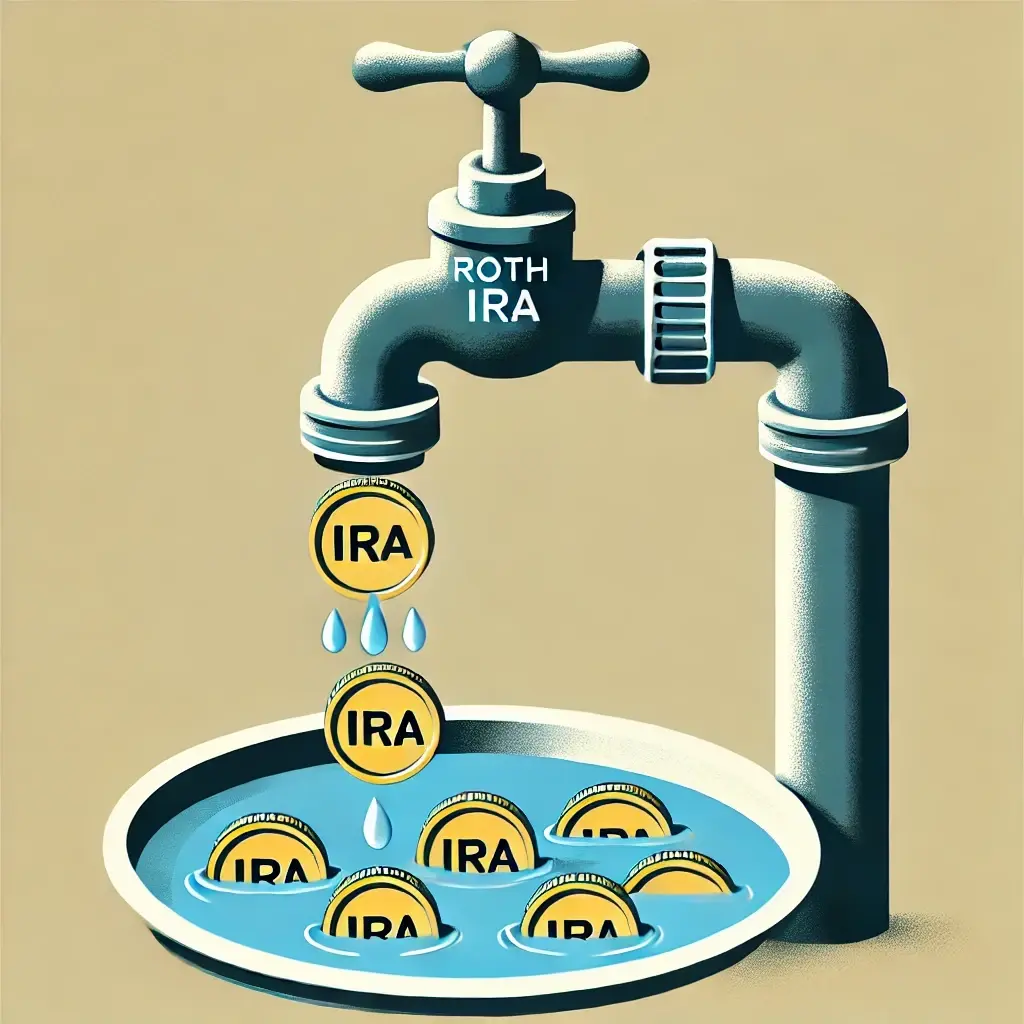
The Impact of Roth IRA Withdrawals on Your Retirement Plan
Retirement Planning | over 1 year ago
Frequently Asked Questions
What is retirement planning with stocks?
Retirement planning with stocks involves using stock investments as part of a broader strategy to build wealth for retirement. This includes deciding how much to invest in stocks, choosing the right stocks or stock funds, and managing these investments over time to meet your retirement goals.
Why are stocks important in retirement planning?
Stocks are important because they offer the potential for higher returns compared to other investments like bonds or savings accounts. Over the long term, these higher returns can help grow your retirement savings significantly, helping you reach your financial goals.
How much should I invest in stocks for retirement?
The amount you should invest in stocks depends on factors like your age, risk tolerance, and time until retirement. Generally, younger investors might allocate a higher percentage to stocks because they have more time to recover from market downturns. As you approach retirement, it may be wise to shift more into conservative investments.
What types of stocks are best for retirement planning?
For retirement planning, many investors focus on a mix of growth stocks, which offer potential for significant capital appreciation, and dividend stocks, which provide regular income. Diversifying across different sectors and industries can also help manage risk.
What role do retirement accounts play in stock investing?
Retirement accounts like 401(k)s and IRAs are tax-advantaged accounts that allow you to invest in stocks while enjoying tax benefits. Contributions may be tax-deductible, and the investments grow tax-deferred or tax-free, depending on the type of account.
How can I manage risk when investing in stocks for retirement?
To manage risk, consider diversifying your stock investments across different sectors, industries, and geographical regions. Additionally, gradually shifting to more conservative investments as you near retirement can help protect your savings from market volatility.
What is the impact of inflation on retirement planning with stocks?
Inflation reduces the purchasing power of your savings over time. Stocks, especially those in companies with strong pricing power, have historically outpaced inflation, making them a valuable component of a retirement portfolio aimed at maintaining purchasing power.
How do I incorporate Social Security into my retirement plan?
Social Security can provide a stable source of income in retirement, but it should be supplemented with personal savings and investments. Understanding your expected Social Security benefits can help you determine how much you need to save and invest in stocks to cover your remaining retirement income needs.
Should I continue investing in stocks after I retire?
Many retirees continue to invest in stocks to maintain growth potential in their portfolio and combat inflation. However, the allocation to stocks should generally be more conservative compared to earlier years, balancing the need for growth with the need for stability.
What are the risks of relying on stocks for retirement?
The main risks include market volatility, economic downturns, and the possibility of not meeting your retirement goals if stock prices fall. To mitigate these risks, it’s important to diversify your investments and consider a well-rounded retirement strategy that includes other asset classes.
How do I plan for healthcare costs in retirement when investing in stocks?
Healthcare costs can be significant in retirement. While stocks can provide the growth needed to cover these costs, it’s also important to consider other strategies like long-term care insurance, health savings accounts (HSAs), and setting aside dedicated savings for medical expenses.
What is the 4% rule, and how does it relate to retirement planning with stocks?
The 4% rule suggests that you can withdraw 4% of your retirement portfolio annually, adjusting for inflation, without running out of money for at least 30 years. This rule is often used as a guideline for determining how much you need to save and invest in stocks and other assets to sustain your desired retirement lifestyle.
Explore Retirement Planning
